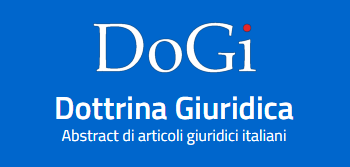Abstract
Con questo articolo si intende svolgere una riflessione sul grado di autonomia della lex sportiva sovranazionale rispetto agli altri sistemi di norme, prendendo in considerazione tre fattispecie che hanno suscitato molto dibattito nella prassi: il divieto di promozione pubblicitaria dei prodotti di tabacco ed assimilati in occasione di manifestazioni sportive, il problema dei diritti audiovisivi in relazione ad eventi sportivi e la fattispecie della c.d. Third Party Ownership nel rapporto tra normativa FIFA e quella della Unione Europea in tema di concorrenza.
In alcuni casi, come nel conflitto tra UEFA e FIFA da un lato ed Unione Europea dall’altro, sulla gestione dei diritti televisivi in ambito sportivo, è intervenuta la giurisprudenza della Corte di Giustizia dell’Unione Europea a risolvere la questione. In altri casi, si vuole mettere in rilievo come il conflitto in realtà si ponga solo come potenziale, ovvero apparente qualora si adotti un approccio rispettoso degli ambiti propri dei diversi sistemi di norme.
This article intends to analyze the level of autonomy of the supranational sports rules compared to other systems of rules, and taking into consideration three cases that have aroused a great debate in practice: the prohibition of advertising promotion of tobacco products and similar in sports events, the problem of audiovisual rights in relation to sports events and the case of the so – called Third Party Ownership in the relationship between FIFA rules and the European Union regulations on competition matters. In some cases, such as in the conflict between UEFA and FIFA, on the one hand, and the European Union, on the other, on the management of television rights in sports, the jurisprudence of the European Court of Justice has intervened to resolve the conflict. In other cases, we want to emphasize how the conflict actually arises only as potential or apparent if you adopt an approach that respects the specific areas of the different systems of norms.





